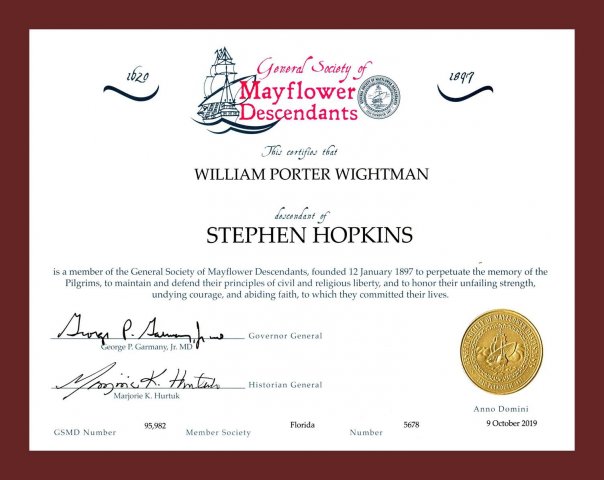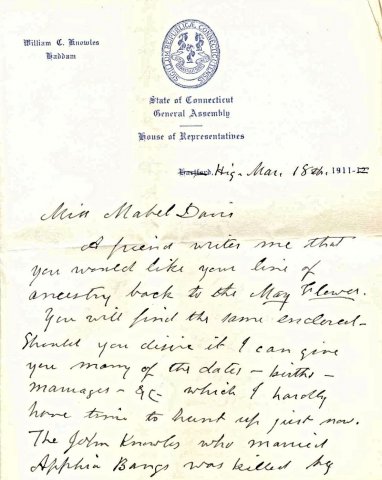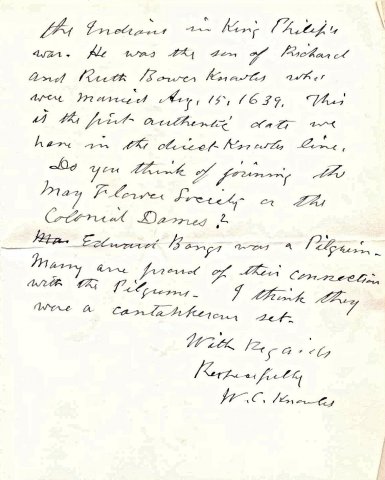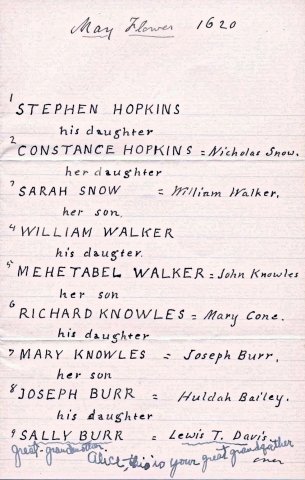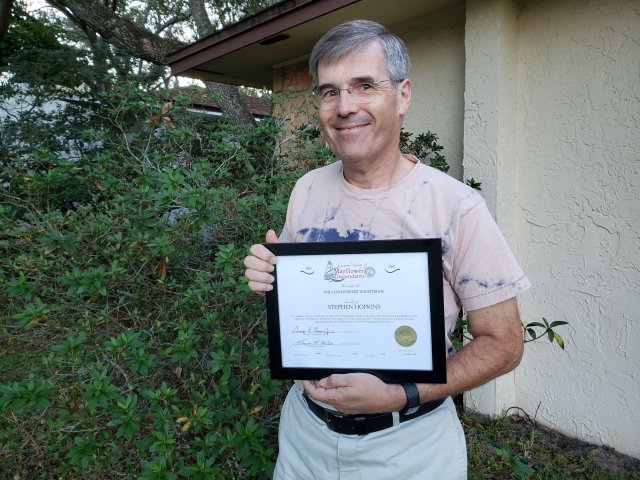Mortal man should be able and willing to delegate at any moment, since mortal he is.
— Brother Cadfael
(Ellis Peters, Dead Man's Ransom)
Permalink | Read 1406 times | Comments (0)
Category Inspiration: [first] [previous] [next] [newest]
Years ago, I read of the experiences of a volunteer who moved to an impoverished country in an effort to make a positive difference in the lives of its suffering people. His initial observations led him to conclude that the community was indolent. They had no ambition, and preferred sitting around and chatting to making any kind of effort to improve their situation.
After sharing their lives for a while, however, he realized that they were not so much lazy as malnourished and exhausted. Living under a blazing tropical sun, with a diet deficient in both quality and quantity, and no access to medical care, it's a wonder they managed as well as they did.
I thought of that story when I re-read "The Luxury of Feeling Good" at The Occasional CEO.
There exists in our modern world the presumption—or maybe better—the luxury of feeling good. Some combination of the right food, enough sleep, exercise, aspirin and flu shots, and access to real medical care when required have been foundational to my decades in the workforce. ... I know there are unfortunate people who suffer without relief, but most of my co-workers through the years have been able to function comfortably on a daily basis thanks to the many blessings of modern life, from coffee to cold packs to dentists to Tylenol, that keep us upright and productive. What makes the luxury of feeling good so special is that we are among the very first generations of humankind to expect each day to be pain-free and generally comfortable.
I'm at the age where I no longer take health for granted. Too many of my friends are dealing with broken bones, replaced joints, arthritis, and even strokes and cancer. I ache more than I'd like, and even getting out of bed reminds me that my muscles and joints don't work as well as they once did.
Did I say I don't take feeling good for granted? Actually, I do. Most of the time I don't even think about it, till suddenly something hurts, and I start moaning and whining. Here's a glimpse of what the high achievers of generations not that far back had to put up with:
[Eli] Whitney entered Yale with forty-two other freshmen and graduated four years later with only thirty-eight living classmates; if my undergrad class had suffered death at the same rate, we would have lost 133 students of 1,400. On break between school terms, Eli himself nearly died of an unspecified disease, what his sister called “Hypo.” A few years later he was struck down with malaria, the effects of which incapacitated him time and again throughout his life. Then, barely recovered, he headed to New Haven, Connecticut, to commence manufacturing and found the town awash in scarlet and yellow fevers so virulent that he could not employ a steady workforce.
Joshua Lawrence Chamberlain [commanded] Union troops at the Second Battle of Petersburg in June 1864. Chamberlain was shot through the right hip and groin, a wound so serious he was given a deathbed promotion and recorded as deceased in Maine newspapers. ... With peace, he served four terms as the Governor of Maine and went on to become president of Bowdoin College. Chamberlain practiced law in New York City. He pursued real estate interests in Florida and railroad interests on the West Coast. At age 70 he volunteered for duty in the Spanish-American War but was rejected. He died at age 85 due to complications from the wound suffered at Petersburg.
Joshua Chamberlain had a full, rich, active, successful career. Nothing seemed to slow him down. But we also know that from the moment of his Petersburg wound in 1864, he was forced to use some kind of primitive catheter and colostomy bag. He underwent six operations to try to correct his wound. He suffered pains, fevers, and infections throughout most of his life. One of my friends at Gettysburg said, "I think Chamberlain had a urinary tract infection for the last fifty years of his life."
Have you ever had a urinary tract infection for a day? Did it make you want to run for governor?
Keep in mind that these are people whose sufferings and accomplishments have been recorded. Let's not forget the everyday men, women, and children who raised crops and reared children, put dinner on the table, endured long journeys, and built cathedrals, all without aspirin, let alone antibiotics.
This means that the last few generations in America have been blessed with enormous advantage. It's not just that many of us get up in the morning and "pursue our passion" instead of having to plow the fields or milk the cows. It's not simply that we can get warm in the winter and stay cool and productive in the summer, or that we have clean water to drink and indoor plumbing. Perhaps our greatest single advantage over prior generations is the ability to work and live comfortably and pain-free.
Happy Thanksgiving!
If you're browsing the toothpaste aisle of your local grocery store, would you do a double-take upon seeing this prominently displayed?
That's what happened to me several years ago when shopping in Switzerland. To this day I smile whenever I see it on a visit to Migros or Coop. It is a prime example of the need for companies to take care when exporting their products to other countries. Perhaps the best-known example is selling the Chevy Nova in Spanish-speaking countries: General Motors certainly didn't want prospective buyers to be thinking "doesn't go" with respect to their cars.
If the Swiss company that makes Candida toothpaste exports their product to English-speaking countries, I doubt it is under the same name. The thought of brushing my teeth with something that suggests a vaginal yeast infection does not inspire me to put this in my shopping cart. It is not much better to be reminded of thrush, a candida infection of the mouth.
I don't know what the makers of Candida were thinking when they chose that name, but it turns out that it's not as crazy as it sounds. Although this toothpaste appears to me to be marketed simply as a good dentifrice, there have been studies showing that certain toothpastes are effective in fighting oral candida infections. Here's a study that compared nine brands of herbal and conventional toothpaste (unfortunately, Candida was not among them) and concluded,
All toothpastes studied in our experiments were effective in inhibiting the growth of all C. albicans isolates. The highest anticandidal activity was obtained from toothpaste that containing both herbal extracts and sodium fluoride as active ingredients, while the lowest activity was obtained from toothpaste containing sodium monofluorophosphate as an active ingredient.
Now you know. Maybe the Swiss are onto something.
 Studies in Words by C. S. Lewis (Second Edition, Cambridge University Press, first published 1960)
Studies in Words by C. S. Lewis (Second Edition, Cambridge University Press, first published 1960)
As I said previously, this is not a book aimed at the hoi polloi—those of us without a strong background in classical literature, Latin, Greek, French, and whatever else scholars were supposed to know in Lewis's day. It is a scholarly, not a popular book. I don't pretend I understood half of what he says, although I could have done better if I'd been more patient. No matter. I still learned a lot. I knew that ignorance of history causes us to misunderstand and falsely judge those who have gone before us; I know now that ignorance of the history of language does the same for the written word. Writing freezes an author's words at a moment in time, while the meaning of those words continues to evolve. Without knowing what a word meant to the author, we may get an entirely false picture of what he is saying.
So what should we do? I think, for ordinary readers, the best we can manage is to be aware that there might be a significant difference between what the author meant and what we think he has said. Simple awareness of the problem should give us the humilty to know that we might not know. And if the word, or phrase, or idea is something we think significant, we—unlike Lewis's original audience—have Google to assist us with a little philological research.
Here are just a few quotes, which ought to be clear enough despite lack of context. Bolded emphasis is mine.
Where the duller reader simply does not understand [a strange phrase], [the highly intelligent and sensitive reader] misunderstands—triumphantly, brilliantly. But it is not enough to make sense. We want to find the sense the author intended. "Brilliant" explanations of a passage often show that a clever, insufficiently informed man has found one more mare’s nest. The wise reader, far from boasting an ingenuity which will find sense in what looks like nonsense, will not accept even the most slightly strained meaning until he is quite sure that the history of the word does not permit something far simpler. (p. 3)
All my life the epithet bourgeois has been, in many contexts, a term of contempt, but not for the same reason. When I was a boy—a bourgeois boy—it was applied to my social class by the class above it; bourgeois meant "not aristocratic, therefore vulgar." When I was in my twenties this changed. My class was now vilified by the class below it; bourgeois began to mean "not proletarian, therefore parasitic, reactionary." Thus it has always been a reproach to assign a man to that class which has provided the world with nearly all its divines, poets, philosophers, scientists, musicians, painters, doctors, architects, and administrators. (p. 21)
When we deplore the human interferences, then the nature which they have altered is of course the unspoiled, the uncorrupted; when we approve them, it is the raw, the unimproved, the savage. (p. 46)
We have learned also from Aristotle, that we must "study what is natural from specimens which are in their natural condition, not from damaged ones." (p. 56)
It's interesting how often we don't follow Aristotle's advice, how often we try to improve situations by concentrating on that which is broken, instead of studying what is working right—from medicine to education, from business to family life.
Unless followed by the word "education," liberal has now lost this meaning [seeking knowledge for its own sake]. For that loss, so damaging to the whole of our cultural outlook, we must thank those who made it the name, first of a political, and then of a theological, party. The same irresponsible rapacity, the desire to appropriate a word for its "selling-power," has often done linguistic mischief. It is not easy now to say at all in English what the word conservative would have said if it had not been "cornered" by politicians. Evangelical, intellectual, rationalist, and temperance have been destroyed in the same way. Sometimes the arrogation is so outrageous that it fails; the Quakers have not killed the word friends. (p. 131)
That English and Protestant authors ... should depend for a scriptural phrase either on Vulgate or Rheims will seem strange to many. Very ill-grounded ideas about the exclusive importance of the Authorized Version in the English biblical tradition are still widely held. (p. 144)
Communis (open, unbarred, to be shared) can mean friendly, affable, sympathetic. Hence communis sensus is the quality of the "good mixer," courtesy, clubbableness, even fellow-feeling. Quintilian says it is better to send a boy to school than to have a private tutor for him at home; for if he is kept away from the herd (congressus) how will he ever learn that sensus which we call Communis? (p. 146)
Innocent, simple, silly, ingenuous ... all illustrate the same thing—the remarkable tendency of adjectives which originally imputed great goodness, to become terms of disparagement. Give a good quality a name and that name will soon be the name of a defect. Pious and respectable are among the comparatively modern casualties, and sanctimonious was once a term of praise. (p. 173)
One of the first things we have to say to a beginner who has brought us his [manuscript] is, "Avoid all epithets which are merely emotional. It is no use telling us that something was 'mysterious' or 'loathsome' or 'awe-inspiring' or 'voluptuous.' Do you think your readers will believe you just because you say so? You must go quite a different way to work. By direct description, by metaphor and simile, by secretly evoking powerful associations, by offering the right stimuli to our nerves (in the right degree and the right order), and by the very beat and vowel-melody and length and brevity of your sentences, you must bring it about that we, we readers, not you, exclaim 'how mysterious!' or 'loathsome' or whatever it is. Let me taste for myself, and you’ll have no need to tell me how I should react to the flavour." (pp 317-318)
And I thought the insistence on "show, don't tell" among current authors was a recent phenomenon. But C. S. Lewis agreed.
The "swear-words"—damn for complaint and damn you for abuse—are a good example. Historically the whole Christian eschatology lies behind them. If no one had ever consigned his enemy to the eternal fires and believed that there were eternal fires to receive him, these ejaculations would never have existed. But inflation, the spontaneous hyperboles of ill temper, and the decay of religion, have long since emptied them of that lurid content. Those who have no belief in damnation—and some who have—now damn inanimate objects which would on any view be ineligible for it. The word is no longer an imprecation. It is hardly, in the full sense, a word at all when so used. Its popularity probably owes as much to its resounding phonetic virtues as to any, even fanciful, association with hell. It has ceased to be profane. It has also become very much less forceful. (pp. 321-322)
I have noticed this effect with profanity today. No matter how much it bothers me, I have to admit that the monumental overuse of words that in my youth weren't even allowed in the dictionary has pulled some of their teeth. On the other hand, it appears that the human creature has a need for forbidden words, because at the same time as we have liberated the old theological, scatological, and sexual epithets, old words have been repurposed into new obscenities. Oddly enough, those who are most free in the ubiquitous overuse of the old swear words, even—or especially—in the presence of those who still find them offensive, are often the least tolerant of those who fail to acknowlege the new prohibitions.
Rick Steves' audio tours were a mainstay of our recent visit to Rome. They tend to be a bit flippant for my taste, and sometimes a bit raunchy, but they come with a lot of great information, too.
The following paragraph pulled me to a complete stop, however, right in the middle of the Pantheon.
[Italy's] Victor Emmanuel III ruled for 44 years but lost favor because he collaborated with Mussolini and the Fascists. During World War II, instead of standing by his people, the king abandoned Rome to the Germans and fled. After the War, the Italians voted for a republic, and proclaimed that no male Savoy could ever again set foot on Italian soil. In 2003, descendants of the Savoy kings were allowed back into Italy for the first time. But they've demonstrated a knack for bad press relations, and saying stupid things. They still complain that Italy owes them money, even while they live in stunning wealth in Switzerland.
What's wrong with this? Why did it have me scratching my head? It's the final sentence: They still complain that Italy owes them money, even while they live in stunning wealth in Switzerland.
Maybe it's the math major in me, but I hate logic that isn't logical, and that sentence—and even more, the derision with which it was spoken—makes no sense.
Perhaps the Savoy descendants are stupid and rude; many of us are. Perhaps they do live in stunning wealth. What does that have to do with whether or not Italy owes them money?
There's a Rockefeller somewhere who owes me 25 cents. Her children and ours were in the same YMCA swimming classes. This was back in the days of pay telephones—when not even Rockefellers had cell phones—and she borrowed a quarter from me because she didn't have the required coin. I expected her to pay me back at the next class, but she forgot, and I didn't ask. The amusement factor of being able to say that the Rockefeller family owed me money was well worth 25 cents.
Technically, she still owes me the money. And if the situation had been reversed, and I owed her the quarter, my debt would still stand, despite the fact that the wealth of the Rockefeller family is now estimated to be some eleven billion dollars. If that's not "stunning wealth," I don't know what is. (Maybe their famous ancestor's wealth, which in today's dollars would make him more than three times as rich as Bill Gates.)
You can argue over whether or not Italy really owes money to the Savoys. But that question is completely independent of how much money the Savoy family has or does not have. In Switzerland or elsewhere. As it stands, Rick Steves' statement is a travesty of both justice and logic.
Does it matter? In a light-hearted tour guide, no. But I'm afraid there are all too many people today who would not have been stunned by the statement, nor would have descried any inconsistency with logic, justice, and reason—and that's a problem.
Permalink | Read 1253 times | Comments (3)
Category Random Musings: [first] [previous] [next] [newest]
How do you become Cake Baker to the Pandas at the National Zoo in Washington?
You put in your time—a lot of time—as a volunteer, and still more time after you are finally hired by the Zoo. You bring your creativity, enthusiasm and love for animals to work with you every morning.
It's not my dream job, but it was for the son-in-law of one of my dearest friends. His work has been featured in the media before, but to my knowledge this is the first time he has been acknowledged as its creator. Congratulations, Brian Cannon!
Permalink | Read 1280 times | Comments (0)
Category Just for Fun: [first] [previous] [next] [newest]
I recently rediscovered this video from 2014. I loved it then, and I love it now. It was originally a Christmas commercial, but it's appropriate for Veterans Day: a reminder that our enemies are human beings, like us.
Evil must be opposed in the strongest terms, and sometimes by force of arms. But oh how often the foot soldiers in the working-out of the world's evils are simply ordinary people, with families and jobs and otherwise ordinary lives, at heart not that different from our own. They are not innocent, any more than we are innocent, but they are human, they are the "neighbors" whom we are commanded to love.
The surgeon who removes a man's leg to prevent the spread of gangrene does not hate the leg, nor the man; he hates only the evil that is destroying him. This is why it is right, and perfectly consistent, for a soldier to shoot a man in the course of war, and then, coming upon him dying on the battlefield, to offer him a drink of water and make him as comfortable as possible.
We who oppose war and protest killing, do we hate, revile, despise, and sneer at those with whom we disagree? Do we rejoice when they suffer?
I remember, from the years of the Vietnam War, a former draftee telling me how they were forced to march to a cadence of "F**k VC!" (Viet Cong) This, and much like it that happens during training, is a terrible thing. The job of a soldier (sailor, airman, and all) is a noble one. We must teach our people to kill, but we can at least refrain from teaching them to hate.
If we forget the importance of this, we are lost.
The Man He Killed
Had he and I but met
By some old ancient inn,
We should have set us down to wet
Right many a nipperkin!
But ranged as infantry,
And staring face to face,
I shot at him as he at me,
And killed him in his place.
I shot him dead because—
Because he was my foe,
Just so: my foe of course he was;
That's clear enough; although
He thought he'd 'list, perhaps,
Off-hand like—just as I—
Was out of work—had sold his traps—
No other reason why.
Yes; quaint and curious war is!
You shoot a fellow down
You'd treat, if met where any bar is,
Or help to half a crown.
— Thomas Hardy
Permalink | Read 1181 times | Comments (0)
Category Random Musings: [first] [previous] [next] [newest]
Who was Stephen Hopkins, the Mayflower passenger who is Porter's 10th great-grandfather?
To me he was just one name out of 15,000 in my family tree database. But having proved his significant relationship to my husband, children, and grandchildren, I thought it best to learn a bit more about him.
Turns out he's quite a character.
It has long been known that he was a passenger on the Mayflower, but only recently has there been good evidence that this was not his first trip to the New World.
Stephen was born in Hampshire, England, in 1581. He married a woman named Mary, and by her he had three children: Elizabeth, Constance, and Giles. Constance is Porter's 9th great-grandmother.
In 1609, Stephen signed onto a ship called the Sea Venture, as a minister's clerk, for a voyage to Jamestown, Virginia. You may recall that the English had settled Jamestown in 1607; this ship was part of a fleet intended to bring settlers and much-needed supplies to the colony. However, the Sea Venture became separated from the fleet in a storm, and was wrecked on Bermuda. Food and fresh water were plentiful and the former passengers survived, led by Thomas Gates, who had been commissioned to become the new governor of Jamestown.
During his life as a castaway, Stephen Hopkins demonstrated the temper for which he was remembered in Porter's family, where outbursts of anger were met with the admonition, "You're behaving like Stephen Hopkins." Or perhaps it was less temper and more independent spirit. In any case, Stephen was vocal about his dissatisfaction with the leadership of Governor Gates, and questioned his authority, leading others to do the same. There's a name for that at sea: mutiny. He was arrested, tried, convicted, and sentenced to death. Thanks to his eloquent pleading and that of others, he was pardoned, and was wise enough in the future to keep his opinions about Governor Gates to himself.
If the name of the ship is familiar to you, you may be a fan of Shakespeare's plays. The fate of the Sea Venture was one of the inspirations for The Tempest, and some think the character Stephano in the play was modeled on Stephen Hopkins.
In May of 1610, having built themselves some new boats, the castaways finally arrived in Jamestown. There they found the colonists starving and dispirited, and determined to depart. Before they left, however, a ship arrived from England with supplies, more colonists, and a new governor. Stephen Hopkins stayed in Jamestown until recalled to England sometime after the death in 1613 of his wife, Mary. He married Elizabeth Fisher in 1617, and they had a daughter, Damaris.
In 1620, Stephen, Elizabeth, Damaris, Giles, and Constance boarded the Mayflower. (Stephen and Mary's other daughter, Elizabeth, had probably died or possibly was married by that time.) They were not Pilgrims, but what the Pilgrims called Strangers, having been recruited in London to assist with a new venture in Virginia. A son, Oceanus, was born to them on the voyage.
As we all know, the Mayflower never made it to the sunny shores of Virginia. Stephen made the best of the situation, signed the Mayflower Compact, and threw himself into the work of the Plymouth Colony, making himself particularly useful by virtue of his previous experience with Native Americans, exploring, and living off the land. When Samoset, an Abenaki Native, startled the colonists by walking into their settlement and speaking to them in English, he spent the night in the Hopkins home.
Stephen and Elizabeth had five more children, born in the Plymouth Colony: Caleb, Deborah, Damaris, Ruth, and Elizabeth. The repetition of names (Damaris, Elizabeth) is usually a good indication that the previous children of those names had died young.
The courts were busy in those days with offenses major and minor, and genealogists are thankful for ancestors who got into a little bit of trouble, because they left records. Stephen Hopkins ran a tavern, and his name appears several times in the court records: for fighting (there's that temper again), for allowing drinking and game playing on Sunday, for allowing people to "drink excessively," and for selling goods for more than the customary price. Also, one of his servants was found to be pregnant by a man who subsequently was executed for having murdered a Native American. The court ruled that Stephen was financially responsible for her and the baby until her term of service was up; instead, he threw her out of the house. Another colonist saved the day by buying out her remaining two years of service and accepting responsibility for her and the child.
Adventuresome, resourceful, independent, competent, fractious, and of fiery temper—that's our Stephen Hopkins. If you wish to read more about him, here are some interesting links:
American Ancestors - Stephen Hopkins
MayflowerHistory.com - Stephen Hopkins
The following quotation is from C. S. Lewis's Studies in Words. It's not a book aimed at the hoi polloi—those of us without a strong background in classical literature, Latin, Greek, French, and whatever else scholars were supposed to know in his day. So do not even try to understand it all, stripped as it is of its context and what has been said on previous pages. It's not hard to follow the point of the sentence I have bolded, however.
Distinct from this, so far as I can see, is the use of communis sensus as the name of a social virtue. Communis (open, unbarred, to be shared) can mean friendly, affable, sympathetic. Hence communis sensus is the quality of the "good mixer," courtesy, clubbableness, even fellow-feeling. Quintilian says it is better to send a boy to school than to have a private tutor for him at home; for if he is kept away from the herd (congressus) how will he ever learn that sensus which we call Communis? (p. 146)
If you want to poke the bear at any gathering of homeschoolers, ask the question, "But what about socialization?"
We have to be careful because this can be an innocent, serious inquiry that deserves a serious answer. The above is not suggested as the best way to respond, no matter how tempting. But we get so very, very tired of the question, perhaps in the same way that parents of large families get tired of being asked, "Haven't you figured out what causes that?" Large families who homeschool get both, of course.
I'll spare you the numerous studies and writings—and comics—that make the point that homeschooling is an excellent vehicle for helping children learn to get along well with others and to engage wisely with society in general. You can Google that for yourself.
But Quintilian (c. 35 - c. 100 AD) proves that the question is nearly as old as the Roman hills. Then again, he was a teacher with his own public school, and a lawyer as well, so perhaps he was a bit biased.
It has been a long time coming.
In our family, it began in 1911, with this letter written to Porter's grandmother, Mabel Davis, by William C. Knowles, a member of the Connecticut State House of Representatives. He was her representative, and also a distant relative, but who the friend was who put them in contact we will probably never know. (Click images to enlarge.)
Note his final line: Many are proud of their connection with the Pilgrims. I think they were a cantankerous set. Apparently Stephen Hopkins was cantankerous, at any rate: when Porter was a teenager and let his temper get the best of him, his mother would tell him to stop acting like Stephen Hopkins.
Mabel Davis was 21 years old when she received this letter. As far as we know, she did not apply to the Mayflower or any other hereditary society. She married the following year, and probably found much else that commanded her attention. (Such as bringing the Maggie P. into the family. How much of her personality came from Stephen Hopkins no one knows, but she was a Force to be Reckoned With.)
Many years later, sometime after we first moved to Florida, Porter took up the letter and the genealogical work. However, he also became too busy, and again it languished.
Then came 2002, the year of my father's death, which had followed close on the heels of the death of Porter's mother. I was stunned to realize that most of the people of whom I might ask questions were now out of reach, and the few remaining were well along in years. What's more, it occurred to me that, as the oldest in my family by quite a number of years, I had memories of bygone times that my siblings did not. I had never been interested in history of any sort, but it began to look as if I needed to take action to stem the rapid disappearance of family knowledge.
So I took up the genealogical baton, helped considerably by three significant factors.
- On both sides of the family there had been people of earlier generations who had shown some interest in family history, so I had a few good books and some painstakingly-gathered notes to begin from.
- We were at the time living just outside of Boston, with the tremendous resources of the New England Historic Genealogical Society library just a short train ride away. I can't emphasize enough how important this was to the progress I made. Alas, this season of my research was short, as we moved back to Florida in early 2003, but I made the most of it. In those days before Internet genealogy took off, the books, manuscripts, and human resources of the library were essential; even now, whenever we visit Boston my goal is to spend as much time as possible at the NEHGS. The same is true of New York City: You can have your Broadway shows—give me the New York Public Library's Milstein room.
- While "There's never enough time!" is my constant and continuous refrain, I can't deny that with our youngest child in college, and not being constrained by the demands of employment, the time was finally right for some serious and sustained research.
I took up the baton, it is true, but I ran in my own direction. I grew up with zero interest in family history, and negative interest in heritage societies. My sole desire at that point was to gather data (like Google—data, data, and more data) and to enjoy solving genealogical puzzles. With the help of many people and resources, my family tree grew to nearly 15,000 people. (I hasten to add that this was without tacking on branches from other people's Ancestry.com or Family Search trees, which is how unsourced and incorrect data is spreading like a California wildfire.) I'm still embroiled in the massive challenge of organizing that data and making sure the tree is as accurate and well-documented as possible—as well as continuing to learn more, of course.
Knowing that he had a Mayflower ancestor—actually, at least three different branches that I know of now—Porter expressed an interest in joining the Mayflower Society, because of the upcoming (2020) 400th anniversary of the Landing of the Pilgrims. With all the data I have collected, you'd think that would be an easy job for me to do, so in 2017 I looked into the process and recklessly promised it to Porter as a Christmas present.
But even well-sourced data about a line of descent is not proof, and the Mayflower Society turns out to be particularly rigorous in its requirements. Of Porter's three possible Mayflower lines, I chose Stephen Hopkins because it looked to be the easiest to prove. Maybe it was, but easy it was not.
Now that I've done it once and know the procedures and requirements, it shouldn't take me as long to do another one—assuming the proof is available. (I can't believe I just wrote that; for months I had been intoning, "Never again. Never again. I am never going through this again." I guess it's like childbirth.) This was the gift that kept on giving: Christmas 2017, birthday 2018, Christmas 2018, birthday 2019. We submitted the final application in May of this year, and in October the certificate at the top of this post finally arrived in the mail.
Stephen Hopkins is Porter's 10th great-grandfather. The line is as follows:
Stephen Hopkins—Constance Hopkins—Sarah Snow—William Walker—Mehitabel Walker—Richard Knowles—Mary Knowles—Joseph Burr—Sarah Burr—Julius Davis—Mabel Davis—Alice Porter—Porter Wightman.
As patriarch of the family Stephen naturally gets all the press, but note that in this line Porter actually has two Mayflower ancestors. Stephen's daughter Constance was also a passenger on that ship.
I had figured to use my work once more as a Christmas gift, with the framed certificate wrapped and waiting under the tree. But I soon discovered that I couldn't wait myself—the road had been so long.
And anyway, it's a really appropriate Thanksgiving present.



